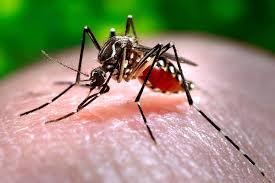THE LATEST UPDATE 2.15.16
The Zika virus is spreading rapidly across South America, the Caribbean, and portions of the southern United States. Zika is a mosquito-borne viral infection which is transmitted by the same type of mosquito linked to dengue and chikungunya.
The World Health Organization (WHO) declared a state of emergency this week and the Centers for Disease Control (CDC) has issued a travel alert for those traveling to affected regions. The water softener market seems to be deluged right now with various products all claiming theirs is the best shower water softener on the market. How do you know which one is really the best? The answer to this question will vary from person to person. What might be best for you is going to be the total opposite of what best fits someone else’s needs. Various elements from the price of the pelican water filter to the efficiency and effectiveness of the unit all play a critical role in determining which water softener is best for you and your family.
When it comes to water softener for the whole house, the most popular choice is the Whole House Salt-Free Water Softener from nuvoH2O. A model like this unit softens water at its point of entry, which means water is softened before it makes its way into your home system. This is an effective model for two reasons: it makes sure all the water that comes out of all your home’s water lines and faucets are softened, and it also makes sure all your pipes are completely protected from the effects of hard water. If you have a bigger home, however, such as one with up to three bathrooms that supply water to the household, you can’t just use any water softener. You have to choose one that can meet the demands of three bathrooms. One such option is the Pelican NaturSoft Salt Free Water Softener for 1-3 bathrooms, although this comes with a price.
However, please be sure to advise your clients of the following facts, to help them make their travel decisions:
- Symptoms can include mild fever, rashes, conjunctivitis, muscle or joint pain and general feeling of illness that begins 2-7 days after infection.
- Four out of five people who are infected have no symptoms at all.
- Recent studies show there is a correlation between the disease and increased number of cases of microcephaly (reduced brain size) in unborn babies.
- If you are not a woman of childbearing age who is pregnant or trying to get pregnant, the Zika virus is unlikely to cause you any serious trouble.
- Zika virus usually remains in the blood of an infected person for about a week. The virus will not affect a baby that is conceived after the virus is cleared from the blood.
- Zika cannot be transmitted through the air, food or water.
- There have been no deaths so far attributed to the Zika virus.
Infected persons are advised to drink water and rest. Hospitalization as a result of Zika is extremely uncommon. In Brazil the current spread of Zika virus is mostly concentrated in the Northeastern states, especially Pernambuco state.
Areas to the south such as Rio and Sao Paulo are currently much less affected. Very few cases have been reported in the Amazon and Foz do Iguaçu.
Nevertheless the precautions for travelling to a region with mosquitoes are important:
- Use plenty of mosquito repellant.
- Stay in places with air conditioning or that use window and door screens to keep mosquitoes outside.
- Sleep under a mosquito bed net.
As of February 10, 2016 – this is the best summary we’ve found of information travelers need to know: (Source: Edward Hospital, Naperville, Illinois)
UPDATE: The Illinois Department of Public Health (IDPH) has advised that, while the primary mode of transmission for Zika virus is from the bite of an infected mosquito, there are at least three cases of possible sexual transmission of Zika virus.
- Sexual transmission of Zika virus from infected women to sex partners has not been reported.
- We do not know how long Zika virus remains in semen.
- Men who live in, or have traveled to, an area where Zika virus transmission is ongoing and who have a pregnant partner should not participate in sexual activity or should consistently and correctly use condoms during sex throughout the pregnancy.
- At this time, the CDC does not recommend testing men to determine the risk of sexual transmission of Zika virus.
- The IDPH recommends doctors offer to test pregnant women who are not showing any symptoms of Zika virus infection within 2-12 weeks after they have returned from travel to affected countries.
When a virus with the potential to cause serious complications starts to spread, especially one that’s not familiar, it can be unnerving.
Zika virus is one of those. Most of the time, people contract the virus through mosquito bites. According to the Centers for Disease Control, the most common symptoms of Zika virus disease are fever, rash, joint pain, and conjunctivitis (red eyes). People with this illness are not usually very sick, and symptoms disappear after several days to a week.
However, Zika virus may cause some sobering problems, such as Guillain-Barre syndrome and birth defects.
Zika virus has been on the radar for some time. It was first isolated from a monkey in Zika forest in Uganda in 1947. In May 2015, The Pan American Health Organization issued an alert about a Zika infection in Brazil.
Recently, the World Health Organization announced the Zika virus was a public health emergency of international concern. In a statement on its website, the organization said the best ways to prevent the spread of the virus “are the control of mosquito populations and the prevention of mosquito bites in at-risk individuals, especially pregnant women.”
The American Red Cross has asked people to hold off on donating blood for 28 days if they’ve been to a Zika-infected area.
One thing that isn’t a concern in the Midwest in February: mosquitoes. However, warm weather is coming and knowledge is a powerful prevention tool. Here are some important facts about Zika virus:
Most people in the United States will not come into contact with the Zika virus, as pointed out by CDC Director Tom Frieden in an article by CNN. The people who should be most concerned are people living in Puerto Rico, the U.S. Virgin Islands, Caribbean or Pacific territories, and Central and South America.
Because the Zika virus may cause birth defects, the CDC has warned pregnant women to avoid those areas, and if they’re there, to take steps to prevent mosquito bites. If you are a woman who is planning to conceive and may have recently traveled to the affected areas or plan to travel to the areas, please contact your OB/GYN physician for recommendations.
How do you get Zika virus?
Mosquitoes are the primary vehicle. While the virus is mainly transmitted by mosquitoes, it can also spread through sexual contact, blood transfusions and (rarely) from mother to child during birth.
How do you protect yourself from Zika virus?
There is no vaccine available to prevent Zika from infecting us, so protecting yourself from mosquitoes is your best defense. If you’re in a high-alert location, wear long-sleeved shirts, long pants and insect repellant.
What happens if you contract Zika virus?
The CDC reports that 1 in 5 people who are infected with Zika will get sick. If that happens, you just treat yourself as if you have a flu virus: rest, fluids, pain reliever/fever reducer.
What if I have a vacation planned?
Think before you book that trip. Check the CDC’s Zika Travel Information.
Now, before you do check, remember that US governmental agencies tend to be ultra-conservative when warning Americans about terrorism or health-related travel.


